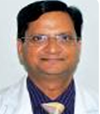What Causes Tendinitis In The Arms And Inflammation Of The Chest Cavity?
Over the last six weeks I ve had lots of serious but unrelated medical issues including - tendinitis in both arms, inflammation of the chest cavity from chest infection, infected teeth requiring removal, severe menstrual pain (uncommon), and a strained LCL in knee. I m concerned that there s an underlying issue that s connecting all these issues.
posted on
Sat, 9 Dec 2017
Medically reviewed by
Ask A Doctor - 24x7 Medical Review Team
 Fri, 2 Mar 2018
Answered on
Fri, 2 Mar 2018
Answered on
 Mon, 5 Mar 2018
Last reviewed on
Mon, 5 Mar 2018
Last reviewed on
Hello,
As per your clinical history is concerned, please follow stepwise:
1) For tendinitis and strained LCL of knee discuss with your Doctor about:
a) Naproxen sodium for pain
b) Corticosteroids injection inside joints
c) Platelet-rich plasma for chronic cases
2) Try to avoid activities that place excessive stress on your tendons, especially for prolonged periods. If you notice pain during a particular exercise, stop and rest. If one exercise or activity causes you a particular, persistent pain, try something else.
3) Try to improve your technique. If your technique in an activity or exercise is flawed, you could be setting yourself up for problems with your tendons. Consider getting professional instructions when starting a new sport or using exercise equipment.
4) Take time after exercise to stretch in order to maximize the range of motion of your joints. This can help to minimize repetitive trauma on tight tissues. The best time to stretch is after exercise when your muscles are warmed up.
5) Use proper workplace ergonomics. If possible, get an ergonomic assessment of your workspace and adjust your chair, keyboard and desktop as recommended for your height, arm length and usual tasks. This will help protect all your joints and tendons from excessive stress.
6) Try to strengthen muscles used in your activity or sport can help them better withstand stress and load.
Regarding menstrual pain follow like this:
1) Do a clinical examination by your Doctor [Gyn] and to confirm it do a [transvaginal ultrasound and TSH].
2) Discuss with your Doctor about permanent treatment plan as per pathological findings only.
Do follow few preventive steps like this:
1) Take warm baths and a heating pad can help relax pelvic muscles, reducing cramping and pain during periods.
2) Do take Over-the-counter nonsteroidal anti-inflammatory drugs (NSAIDs), such as [ibuprofen] for painful menstrual cramps.
3) Do regular exercise.
For chest infection do a [culture, a biopsy, and RF test] to know exact cause and take treatment accordingly.
Hope I have answered your query. Let me know if I can assist you further.
Regards,
Dr. Uday Nath Sahoo
As per your clinical history is concerned, please follow stepwise:
1) For tendinitis and strained LCL of knee discuss with your Doctor about:
a) Naproxen sodium for pain
b) Corticosteroids injection inside joints
c) Platelet-rich plasma for chronic cases
2) Try to avoid activities that place excessive stress on your tendons, especially for prolonged periods. If you notice pain during a particular exercise, stop and rest. If one exercise or activity causes you a particular, persistent pain, try something else.
3) Try to improve your technique. If your technique in an activity or exercise is flawed, you could be setting yourself up for problems with your tendons. Consider getting professional instructions when starting a new sport or using exercise equipment.
4) Take time after exercise to stretch in order to maximize the range of motion of your joints. This can help to minimize repetitive trauma on tight tissues. The best time to stretch is after exercise when your muscles are warmed up.
5) Use proper workplace ergonomics. If possible, get an ergonomic assessment of your workspace and adjust your chair, keyboard and desktop as recommended for your height, arm length and usual tasks. This will help protect all your joints and tendons from excessive stress.
6) Try to strengthen muscles used in your activity or sport can help them better withstand stress and load.
Regarding menstrual pain follow like this:
1) Do a clinical examination by your Doctor [Gyn] and to confirm it do a [transvaginal ultrasound and TSH].
2) Discuss with your Doctor about permanent treatment plan as per pathological findings only.
Do follow few preventive steps like this:
1) Take warm baths and a heating pad can help relax pelvic muscles, reducing cramping and pain during periods.
2) Do take Over-the-counter nonsteroidal anti-inflammatory drugs (NSAIDs), such as [ibuprofen] for painful menstrual cramps.
3) Do regular exercise.
For chest infection do a [culture, a biopsy, and RF test] to know exact cause and take treatment accordingly.
Hope I have answered your query. Let me know if I can assist you further.
Regards,
Dr. Uday Nath Sahoo
I find this answer helpful
Disclaimer: These answers are for your information only and not intended to replace your relationship with your treating physician.
This is a short, free answer.
For a more detailed, immediate answer, try our premium service
[Sample answer]
Related questions you may be interested in
 Loading Online Doctors....
Loading Online Doctors....


